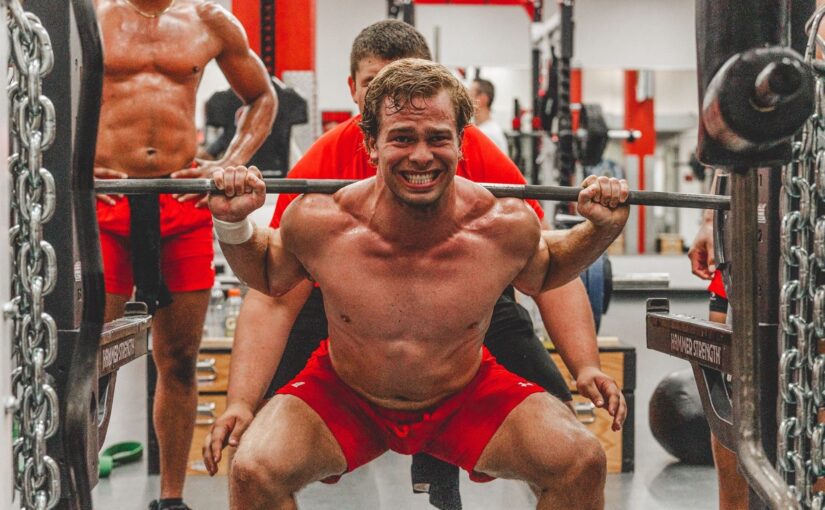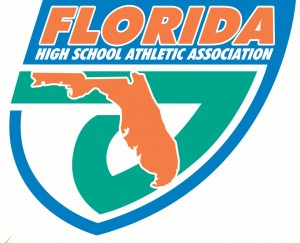H.S. Athletes May Have More Opportunity To Transfer In Florida
State rules currently say that once student-athletes practice for one school during a school calendar year, they can’t play at another school that same year without receiving a waiver. The proposals would allow student transfers during the school year without loss of eligibility. They would also benefit private schools, critics say, a reflection of Republican lawmakers’ desire to encourage more school choice.
That would create “bedlam” in interscholastic sports, warned Roger Dearing, executive director of the Florida High School Athletic Association.
“These bills would benefit those with a predisposition to cheat — by tearing down barriers that exist to keep those few unscrupulous coaches from improperly recruiting impressionable young athletes,” Dearing said Monday during a conference call organized to lobby against the bills.
Yet the measure was passed by the House Education Committee Monday after Rep. Kelli Stargel, R-Lakeland, said new rules would give the benefit of the doubt to the student-athlete.
“It’s going to make sure children are not punished for the adults around them,” Stargel said during the committee hearing. “It’s very important to some of them. Sometimes (athletics) is the only thing that keeps them in school.”
Under the bill, student-athletes who transfer during a school year would remain eligible while their cases are reviewed by the governing body. It establishes sanctions for coaches who commit recruiting violations and imposes new requirements on the FHSAA to quickly rule on questions of student eligibility.
Critics of the bill say it seeks to address problems that don’t exist.
The rules the bill would change have been established by the nearly 800 schools that are members of the FHSAA as a way to “maintain a level playing field,” Dearing told lawmakers at Monday’s hearing. Of the 263,000 students who participated in sports last year, Dearing said only 74 were denied eligibility because of a bad transfer.
Though the bills would seemingly favor private schools that aren’t limited by the same zoning requirements public schools have for attendance, the boards of directors of the Florida Association of Academic Nonpublic Schools and the Florida Council of Independent Schools both voted unanimously to oppose the legislation. Those groups represent nearly 1,500 private schools and 372,000 students.
Dearing suggested during the conference call that one of the motives for the legislation was the FHSAA’s recent decisions to make Lakeland High forfeit every win from the 2010 football season after using two ineligible players. Then, last season, three players were ruled ineligible at Lakeland after an FHSAA investigation concluded they or their families falsified documents in moving to a new school zone.
But Stargel, who is from Lakeland, said the rules fall too heavily on students and were too easily misunderstood by athletes, their parents and boosters.
“The by-laws are very broad,” she said. “They can be interpreted any way (the FHSAA) wants to interpret them.”
The FHSAA has also been hurt by a desire among Republican lawmakers to boost charter and private schools as a way to encourage more school choice. Another provision of the bills would allow athletes in private schools of up to 250 students play for their zoned public school if their private school doesn’t offer their particular sport. The Senate version also would create a private-school association that could rival the FHSAA.
Both bills have passed early tests in committee hearings but face votes before the full membership of both chambers and a review by Gov. Rick Scott before either could become law.
Though his school might figure to gain from some of the new rules, Jose Fernandez, the athletic director at Father Lopez High School in Daytona Beach, wasn’t ready to endorse the idea.
“It would seem private schools would have the most to benefit, but we’ve got to be very careful about making any changes,” Fernandez said in a telephone interview Monday. If you make it too easy for student-athletes to switch schools, he wondered, how difficult does it become for a coach to maintain control of a team?
“There’s a lot of shopping that goes on right now. Student-athletes are looking for schools where they have the best opportunity to play right away,” he said. “But we lose sight of the big picture when people are looking for instant gratification. Athletics doesn’t always give instant gratification. What happens to earning it?”







